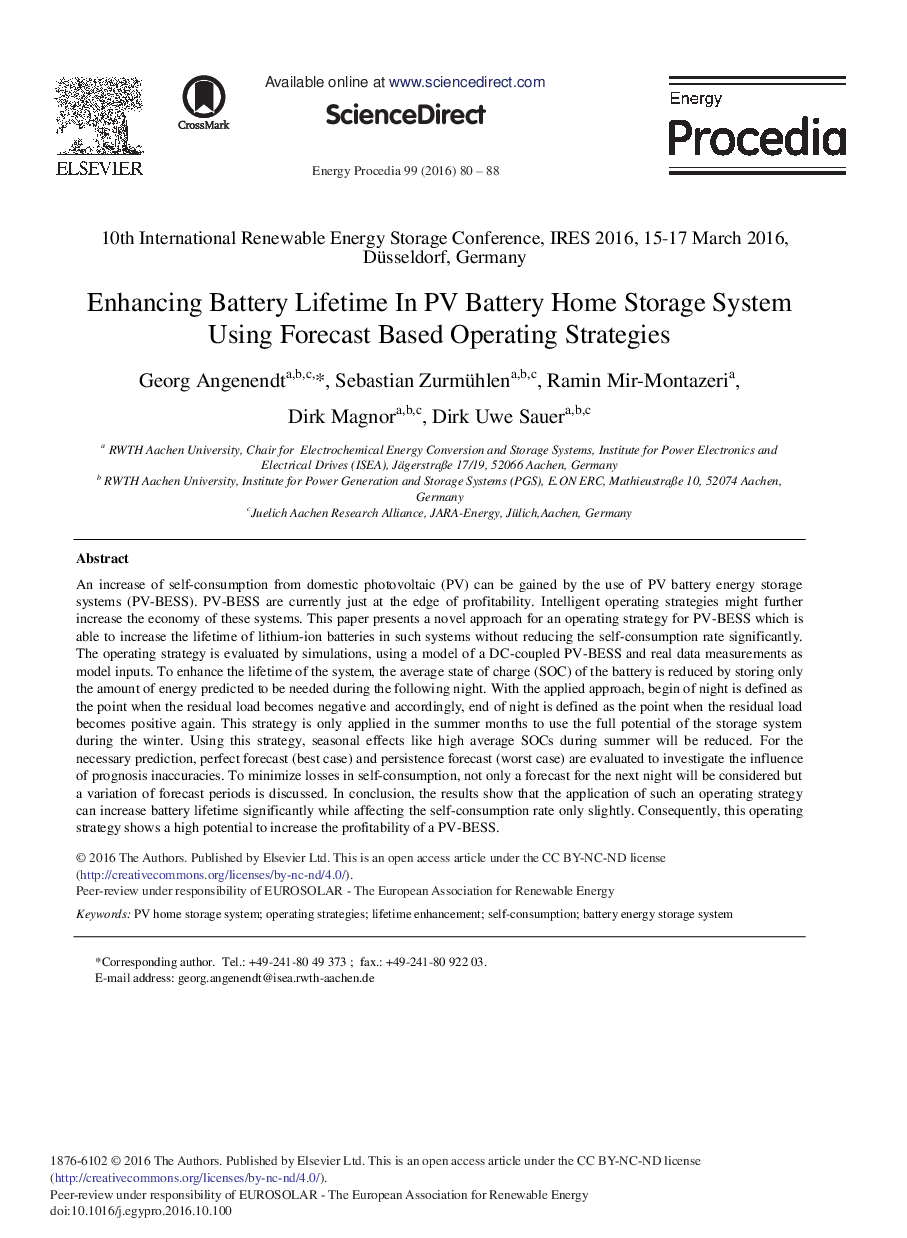| Article ID | Journal | Published Year | Pages | File Type |
|---|---|---|---|---|
| 5446662 | Energy Procedia | 2016 | 9 Pages |
Abstract
An increase of self-consumption from domestic photovoltaic (PV) can be gained by the use of PV battery energy storage systems (PV-BESS). PV-BESS are currently just at the edge of profitability. Intelligent operating strategies might further increase the economy of these systems. This paper presents a novel approach for an operating strategy for PV-BESS which is able to increase the lifetime of lithium-ion batteries in such systems without reducing the self-consumption rate significantly. The operating strategy is evaluated by simulations, using a model of a DC-coupled PV-BESS and real data measurements as model inputs. To enhance the lifetime of the system, the average state of charge (SOC) of the battery is reduced by storing only the amount of energy predicted to be needed during the following night. With the applied approach, begin of night is defined as the point when the residual load becomes negative and accordingly, end of night is defined as the point when the residual load becomes positive again. This strategy is only applied in the summer months to use the full potential of the storage system during the winter. Using this strategy, seasonal effects like high average SOCs during summer will be reduced. For the necessary prediction, perfect forecast (best case) and persistence forecast (worst case) are evaluated to investigate the influence of prognosis inaccuracies. To minimize losses in self-consumption, not only a forecast for the next night will be considered but a variation of forecast periods is discussed. In conclusion, the results show that the application of such an operating strategy can increase battery lifetime significantly while affecting the self-consumption rate only slightly. Consequently, this operating strategy shows a high potential to increase the profitability of a PV-BESS.
Related Topics
Physical Sciences and Engineering
Energy
Energy (General)
Authors
Georg Angenendt, Sebastian Zurmühlen, Ramin Mir-Montazeri, Dirk Magnor, Dirk Uwe Sauer,
